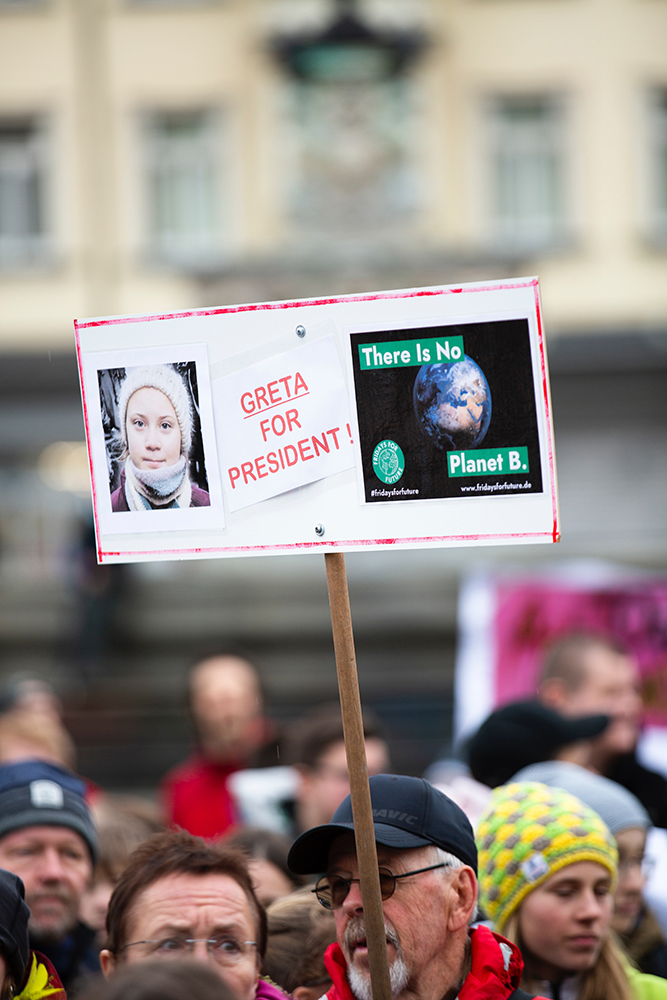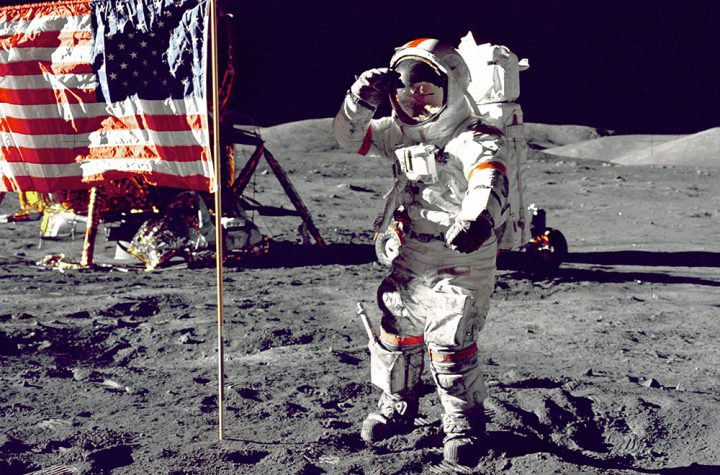
It has also produced one clear winner: Vladimir Putins Russia.
U.S. officials, oil industry insiders and analysts say secret deals between Moscow and Caracas to produce, transport and sell oil to other markets have become a cash cow for Russia that is earning its state-controlled enterprises an estimated $120 million a month.
The Russians describe their relationship with the South American nation, home to the worlds largest proven oil reserves, as one of mutual cooperation. Since Hugo Chávez founded the socialist state in 1999, Russia has become its primary supplier of military equipment and advisers, a consistent supporter in international bodies and a key source of government loans and investment.
As Maduro confronts a crisis, Russias footprint in Venezuela grows
But now, observers say, the Russians are to some extent extorting Maduro, Chávezs successor, who has been boxed in by the United States. Washington is blacklisting ships that transport Venezuelan crude and threatening secondary measures against any entity, including international banks and customers, that materially assist Maduros government. Thats made Venezuelas greatest asset its oil a globally toxic brand.
The Russians have been willing to absorb the risk of sanctions. Theyre chartering vessels from third parties and obscuring the origin of the crude as they market it around the world.
But theyre also charging Maduro dearly for their efforts sometimes through fees but more often by demanding deep discounts on crude that can be flipped for a tidy profit.
U.S. officials and industry analysts say Russian state companies chiefly the state-controlled oil giant Rosneft are handling 70 to 80 percent of Venezuelas total oil exports.
In sharp contrast to the drain on the coffers of the Soviet Union resulting from Moscows Cold War-era support of communist Cuba, todays relationship with socialist Venezuela is providing Russia with a rare opportunity to make a mint as it strengthens its foothold in the backyard of the United States.
Neither the Russian Foreign Ministry nor Rosneft responded Thursday to requests for comment. PDVSA, Venezuelas state-owned oil company, and Venezuelas Communications Ministry were similarly unresponsive.
In an interview last month with The Washington Post, Maduro said Rosneft was responsible for 15 to 20 percent of Venezuelas oil production, and was making important investments to multiply that production. He did not address Russian marketing or transport of the oil.
U.S. officials and industry sources say the Russians also have been supplying Venezuela with the chemicals it needs to keep its troubled oil sector functioning, as well as with refined gasoline. Much of Venezuelas supply of chemicals was previously provided by U.S. companies. But Maduro appeared to play down Venezuelas reliance on Russia.
The U.S. has tried to block all of the imports we need for energy production, but for now weve succeeded in avoiding being impacted by it, he said. Those relations are diversified. They dont depend on just one international actor.
Maracaibo, Venezuelas oil capital, caught between U.S. sanctions and Maduros socialism
This article, which reveals new details of Russias economic involvement with Venezuela, is based on more than a dozen interviews with people familiar with Russia-Venezuela deals, several of whom spoke on the condition of anonymity to discuss sensitive matters.
The Russians have made no secret of their support for Maduro who is considered an illegitimate leader by the United States and more than 50 other governments or of their political and economic interest in Venezuela, a broken and isolated country in search of any benefactors it can find. Russian Foreign Minister Sergei Lavrov is due Friday in Caracas, where the Russian Foreign Ministry says he will discuss practical steps to deepen cooperation between the two countries in areas such as energy, mining, transport, agriculture, medicine, pharmaceuticals and military-technical cooperation.
The Russians have learned that they dont need another Cuba, they dont need to engage in imperial overstretch, said Russ Dallen, a managing partner at Caracas Capital Markets, a financial and consulting firm that tracks Venezuelan oil. This time, they are making their colonies pay and are sucking everything they can out of Venezuela.
U.S. officials estimate that Rosneft is handling 400,000 barrels of Venezuelan crude a day more than half of Venezuelas production, by some accounts and reaping a profit of roughly $120 million a month. Venezuelan oil insiders with access to data from PDVSA put the number slightly lower, depending on production levels in any given month. Venezuelas oil output has fallen by about 35 percent since the embargo was imposed in January 2019.
Other companies, including Spains Repsol, Indias Reliance and U.S.-based Chevron, which has been given a renewable sanctions waiver, remain relatively minor players in the Venezuelan oil industry.
Rosneft remains by far the most important foreign company doing business in Venezuela, not only as an investor in five joint oil ventures but also as a force in marketing and sales.
Rosneft is making a lot of money in Venezuela, said Elliott Abrams, the U.S. special representative for Venezuela. If you think about the number of barrels a day they are handling, it turns into a neat profit.
Maduro says hes still in control of Venezuela, ready for direct talks with the United States
Russia has said the oil it ships from Venezuela is not subject to U.S. sanctions, which restrict U.S. companies and individuals from doing business with the Venezuelan government and PDVSA. Russia has also received Venezuelan oil as repayment of Rosneft loans.
U.S. officials say they are considering ways to cut the lifeline Rosneft and its subsidiaries are providing to Maduro.
Were letting the Russians and were letting the company know that their support of the Maduro regime is its not a good business decision, but its also immoral, what its doing to the people of Venezuela, White House national security adviser Robert C. OBrien said at a forum in Washington on Wednesday.
So I think youre going to see some action, either voluntarily from the company, or the U.S. will likely take action in the near future on that issue.
But sanctions against one of Russias largest companies is a controversial decision within the Trump administration. U.S. imports of Russian crude oil have surged over the past year. According to Dallen, Russia is now the second-largest supplier to American refineries.
Venezuelas opposition has supported U.S. sanctions on Maduros government.
If we assume that the way forward is to increase diplomatic, economic and financial pressure on the dictatorship, then I believe that all sources of oxygen to Maduro to maintain his repressive apparatus must be addressed, senior opposition figure Leopoldo López said in an interview.
Abrams said the approach is working. He pointed to the extraordinary steps Maduro has taken to sustain the economy under the embargo including embracing a de facto dollarization of the economy and holding talks to give control of oil sites to foreign companies.
When people say to me the sanctions are not working, I look at Maduro committing treason against Chavismo, and I say, this can only be explained by the impact of sanctions, he said.
At 8 p.m. on Nov. 6, two men representing themselves as senior members of Russian intelligence Oleg Antonov, 50, and Tsvetan Kirilov, 40 held a meeting in a mid-rise building in central Caracas. Several executives from Venezuelas oil and other industrial sectors were present, according to four people who said they had direct knowledge of the event.
Trump administration sanctions, the Russians argued, had largely targeted the state-owned oil firm. So they pitched a way around them, with oil exploration and export deals conducted through joint ventures between Russian companies and private Venezuelan entrepreneurs. Such arrangements, the two men suggested, could exploit a loophole that would make it easier to sell Venezuelan crude to leery foreign buyers.
Under a deal struck between Chávez and the Cuban leader Fidel Castro, Venezuela provides free and heavily discounted oil to the communist island, which keeps some and sells the rest. The Trump administration, which accuses Cuba of running Venezuelas repressive intelligence service, has been studying the possibility of a limited naval blockade to prevent the shipments, and it has blacklisted several ships and maritime companies based in countries such as Cyprus and Panama.
The Russians, the people with knowledge of the meeting said, floated the idea of flying Russian flags on tankers leaving Venezuelas ports, essentially daring the United States to interfere. They also discussed the possibility of expanding cooperation in gold and other commodities mined in Venezuelas mineral-rich south.
U.S. sanctions block Venezuelas government and specific individuals close to it from using the U.S. financial system or conducting transactions in U.S. dollars, measures that have led many European banks to stay away rather than complicate their relations with the United States.
But the Russians discussed expanding a system already employed by the Maduro government to sidestep U.S. sanctions: the use of Russian banks to store cash and make international transactions on Venezuelas behalf.
The Russians were talking about everything, about more business, about how to get around U.S. sanctions, said one person with direct knowledge of the meeting.
Asked about the reported meeting and the Russian individuals, the CIA declined to comment.
Russias Federal Security Service, the alleged employer of the two visitors, did not respond to a request for comment.
Trump meets with Venezuelan opposition leader, but his interest in the issue has waned
Putin has long criticized U.S. sanctions against Russia and other countries, and he has suggested that other currencies be used to replace the dollar as international tender.
The Russians are expanding their stakes in Venezuela in other ways. Rosneft in recent months has increased its operational control over existing joint ventures in the oil sector, including the largest such enterprise, Petromonagas. It has also engaged in talks about creating arrangements in which foreigners would hold majority ownership. Such arrangements, first reported by Bloomberg News and confirmed by two people familiar with the discussions, would effectively defy a Chávez-era policy against allowing foreign entities to control any part of the nations energy sector.
In an interview with The Post, Juan Guaidó, the opposition figure recognized by the United States and more than 50 other nations as Venezuelas true leader, would not say whether he backed harsher U.S. sanctions on Rosneft. But he said its clear that in 2019, the primary economic beneficiary [in Venezuela] were companies of Russian origin.
Others argue that the administration has overshot on sanctions. In last months interview, Maduro suggested that U.S. companies could once again profit from Venezuelas oil sector should sanctions be relaxed. Some U.S. industry players most of whom have been shut out of Venezuela say Washington is imposing an America last policy that is effectively granting the Russians exclusive access to Venezuelas wealth.
Sanctions have empowered and enriched the U.S.s strategic adversaries, particularly the Russians who have used the crisis to regain a military foothold in our hemisphere, as Rosneft plunders a fortune by monopolizing the trade of hydrocarbons in and out of Venezuela, Harry Sargeant, a principal of the U.S. firm EREPLA Services, said in a statement. The company entered into a potentially lucrative contract with the state-owned Venezuelan oil firm PDVSA in 2018 but has been prevented by sanctions from launching operations.
The financial relationship between Russia and Venezuela has changed over time. During the Chávez years, the Russians extended $3.15 billion of credit for the purchase of Sukhoi fighter jets, air defense systems, tanks and other weapons. In 2014, the year after Chávez died and Maduro took over, Russia, through Rosneft, provided some $6.5 billion in loans to PDVSA. Venezuela has repaid that loan with oil at a rate of nearly $2 billion a year. The full amount is set to be paid off by the first quarter of this year.
Guaidó makes surprise appearance outside Venezuela, defying travel ban to meet Pompeo, rally support in Europe
The Russians could offer new loans to Venezuela for repayment in oil. In the meantime, analysts say, they are engaging in obfuscation and logistical tricks to hide the extent of their involvement in Venezuelas oil export trade.
Though China largely ceased direct imports of Venezuelan oil last year in a nod to U.S. sanctions, the Chinese appear still to be receiving Maduros crude now delivered by the Russians.
In December, for example, Rosneft chartered the Princess Mary, a Liberian-flagged freighter, according to port documents obtained by Caracas Capital. The ship had previously been used to transport crude to an India refinery co-owned by Rosneft. India is an importer of Venezuelan oil that has resisted U.S. appeals to stop.
On Dec. 3, the Princess Mary picked up a large cargo of oil from an offshore platform near the Puerto Jose refinery on Venezuelas northern coast.
For the next 12 days, according to captures of the ships transponder, it sailed to a point off Togo on the West African coast, Caracas Capital says. There, it rendezvoused with two smaller ships, the Ridge U and the Ridge A. The Princess Marys crude was transferred to the smaller ships at sea. They then sailed toward Asia, according to transponder data and satellite images.
The Ridge A stopped sending transponder signals on Jan. 15. Five days later, the vessel turned up in the Chinese port of Zhanjiang. As of this week, the Ridge U remained in the Singapore Strait, reporting its destination as Shandong, China.
The Russians are now acting as the personal Uber drivers for Venezuelan oil, Dallen said.
The Chinese Foreign Ministry did not respond Thursday to a request for comment.
Guaidó, opposition lawmakers defy security forces, burst into Venezuelas National Assembly
A fake Walmart, cases of Dom Pérignon and the almighty dollar: Inside socialist Venezuelas chaotic embrace of the free market
Juan Guaidó promised to save Venezuela. Now the flame he lit is petering out, and his U.S. backers are weighing their options.
Todays coverage from Post correspondents around the world
Like Washington Post World on Facebook and stay updated on foreign news




More Stories
As the pandemic wreaks havoc on TV and movie ‘love lives’, intimacy coordinators need to find ways to adapt